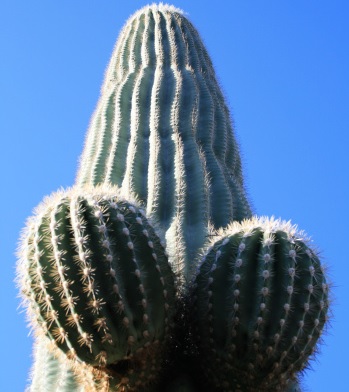freediver
Gold Member
     Offline
Offline

www.ozpolitic.com
Posts: 52415
At my desk.
|
http://www.cosmosmagazine.com/features/print/648/save-whaling
Whaling can be done just as sustainably as other forms of marine harvesting - if we remove our cultural blinkers.
Why is it that the International Whaling Commission condones the slaughter of rare whales by indigenous peoples using what are, arguably, inhumane traditional methods, while ruling against the commercial harvest of more common species by more humane methods?
'Aboriginal subsistence whaling', as it's known, is currently permitted by the commission for Denmark (fin and minke whales), the Russian Federation (grey and bowhead whales), the islands of St Vincent and the Grenadines (humpback whales) and the United States (bowhead and grey whales). A key condition is that meat and other products from the slaughter not be sold.
In the lead-up to a recent meeting of the commission in Ulsan, South Korea, there was no discussion of the number of humpback whales the Grenadines are allowed to kill in the Caribbean - even though this species is listed by the International Union for the Conservation of Nature as vulnerable to extinction.
The harvest of smaller species belonging to the suborder Odontoceti (for example, dolphins and pilot whales) is not regulated by the commission and not discussed. This includes, for example, the slaughter of long-finned pilot whales by Danish Farosese fishermen by driving the whales close to the shore, then weighing the animals down with ropes attached to stones. The whales are then stabbed in the blubber with a sharp hook, called a gaff, before being pulled to shore.
Before the Ulsan conference, Australia's Environment Minister, Ian Campbell, travelled the world railing against the slaughter of whales - concentrating entirely on Norwegian and Japanese whalers. He was reportedly "shocked and saddened by recently broadcast images of whale-cooking classes in Japan".
I don't like the idea of killing whales and I am always outraged when science is wrongly invoked to justify politics - as Japan does to justify the continual harvest of minke whales for essentially cultural reasons. But I am just as appalled by ignorance and double standards on this issue.
Norwegian whalers have a long cultural tradition of killing, eating and selling whale products. They argue that minke whaling is an environmentally sound way of producing food, that the harvest of whales is based on scientific advice drawn from the best available knowledge, and that decisions are based on the precautionary principle (because there's uncertainty about biological data on the number of whales, harvesting is done cautiously and with a reasonable margin of safety, they say). All harvesting is accompanied by monitoring, they add, and systems exist to ensure compliance with regulations.
Whaling was suspended in 1986, and Norway - after some reluctance and faced with the threat of sanctions - also halted whaling the following year. But when, in 1992, the commission's scientific committee estimated the north-east Atlantic minke whale population had reached 86,700, Norway resumed whaling. Despite this, the number of minke whales in the region is now estimated at 112,000.
Whales are harvested by Norwegians according to a strict quota system based on an understanding of population numbers and dynamics. The 2005 season allows Norwegian whalers 796 minke whales - up from last year's 670. The whalers must operate in accordance with strict protocols for killing whales which are deemed humane. Whales are said to die instantly when struck by a harpoon tipped with the grenade.
Greenpeace made its name by opposing commercial whaling. In an insightful review of Greenpeace's early years, environment journalist Fred Pearce has written, "Greenpeace was far from being the first green group to oppose whaling. But it was the first green group to ignore the scientific arguments about whale reproduction rates, population dynamics, and how large a sustainable cull might be, in favour of an undiluted ethical argument: save the whale." The media war was effectively reduced to the simple issue of whether or not 'whales are good'.
As a consequence many Westerners have come to venerate cetaceans, the zoological order which comprises the 80 or so species of whales, dolphins and porpoises. It is not unusual for cultures to venerate particular animals: orthodox Hindus venerate cows, believing them to possess divine qualities. But is this a useful basis from which to develop national and international environmental policies for the conservation of species?
Dugongs, like whales, are long-lived marine mammals. They feed on sea grass in northern Australian waters and are slow breeders, suckling a single calf for over 18 months. Two papers published last year in the British journal Animal Conservation suggest dugong populations in the Torres Strait are grossly over-fished. The Australian government accepts that about 1,000 dugongs are killed each year by indigenous communities, and that this is probably 10 times the estimated sustainable harvest.
I respect the rights of indigenous Australians to hunt dugongs, and I respect the right of Norwegians and Japanese to hunt whales and trade the products of their slaughter. But the activity must be sustainable. Instead of playing emotion, the Australian and other Western governments could learn from the reasoned and scientific approach taken by the Norwegians.
|

 Forum
Forum

 Home
Home 

 Album
Album 

 Help
Help

 Search
Search

 Recent
Recent 

 Rules
Rules 

 Login
Login

 Register
Register





 Pages:
Pages: 

